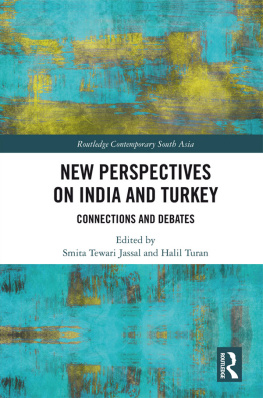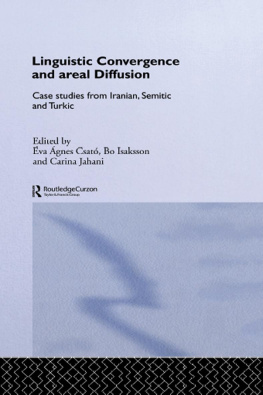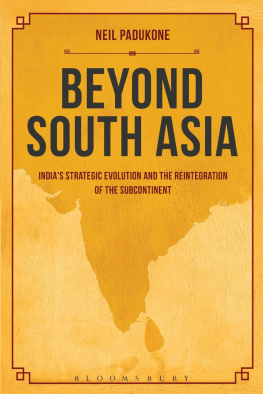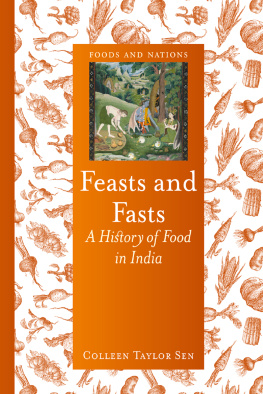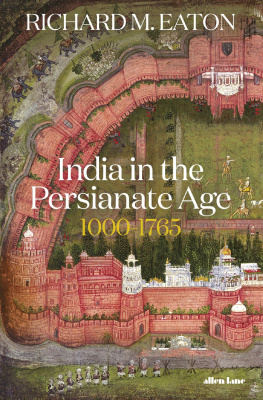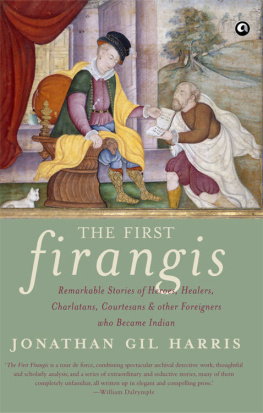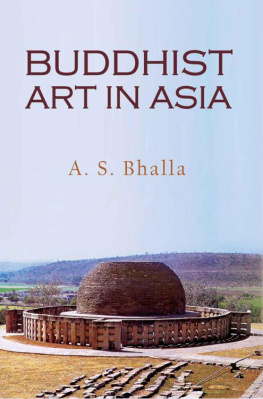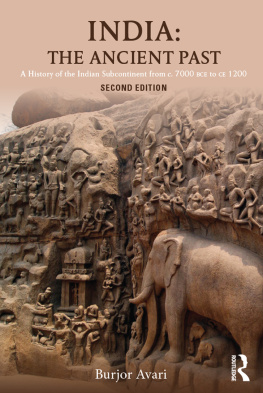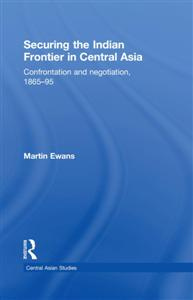New Perspectives on India and Turkey
India and Turkey, Asia Minor and the subcontinent of Hindustan, and the Ottomans and Mughals have had shared histories of contact, engagement, and dialogue over the centuries. Much of northern India was under the control of rulers from Central Asia since at least the thirteenth century. Startling glimpses of the presence of Turkic-speaking peoples from Central Asia are still visible, for example, in north Indian material cultures languages, cuisine, religion, architecture, and medicine.
This book places the Indian subcontinent side by side with the Turkic-speaking world, both past and present, in order to understand one geographical context in relation to the other. The juxtaposition of the two countries throws up some startling commonalities as well as considerable differences, and it is the variations as well as the similarities that allow for comparability. By exploring historical connections and providing a comparative perspective in terms of spirituality and religion, social movements, political economy, and foreign policy, the book initiates productive cross-cultural conversations, allowing concerns from one location to illuminate the other. The book is split into five parts: History and Memory, Nationhood and Leadership, Secularism, Debating Development, and Claiming the City.
The first comparison of the subcontinent and present-day Turkey, the book emphasizes the importance of cross-regional comparative analysis in order to overcome some of the pitfalls of area-focused analysis. Filling a gap in the existing literature, it will be of interest to scholars in various disciplines, including politics, religion, history, urbanization, and development in the Middle East and Asia.
Smita Tewari Jassal is Professor of Sociology at Ambedkar University, Kashmere Gate, Delhi, India at the Middle East Technical University, Ankara, Turkey.
Halil Turan is Professor and Chairperson, Department of Philosophy, Middle East Technical University, Ankara, Turkey.
Routledge Contemporary South Asia
Sri Lankas Global Factory Workers
(Un) Disciplined Desires and Sexual Struggles in a Post-Colonial Society
Sandya Hewamanne
Migration of Labour in India
The squatter settlements of Delhi
Himmat Singh Ratnoo
Gender, Nation and Popular Film in India
Globalizing Muscular Nationalism
Sikata Banerjee
Media as Politics in South Asia
Edited by Sahana Udupa and Stephen D. McDowell
Death and Dying in India
Ageing and end-of-life care of the elderly
Suhita Chopra Chatterjee and Jaydeep Sengupta
Documentary Film in India
An Anthropological History
Giulia Battaglia
The Rule of Law in Developing Countries
The Case of Bangladesh
Chowdhury Ishrak Ahmed Siddiky
New Perspectives on India and Turkey
Connections and Debates
Edited by Smita Tewari Jassal and Halil Turan
For a full list of titles in this series, please visit www.routledge.com
New Perspectives on India and Turkey
Connections and Debates
Edited by Smita Tewari Jassal and Halil Turan

First published 2018
by Routledge
2 Park Square, Milton Park, Abingdon, Oxon OX14 4RN
and by Routledge
711 Third Avenue, New York, NY 10017
Routledge is an imprint of the Taylor & Francis Group, an informa business
2018 selection and editorial matter, Smita Tewari Jassal and Halil Turan; individual chapters, the contributors
The right of Smita Tewari Jassal and Halil Turan to be identified as the authors of the editorial material, and of the authors for their individual chapters, has been asserted in accordance with sections 77 and 78 of the Copyright, Designs and Patents Act 1988.
All rights reserved. No part of this book may be reprinted or reproduced or utilised in any form or by any electronic, mechanical, or other means, now known or hereafter invented, including photocopying and recording, or in any information storage or retrieval system, without permission in writing from the publishers.
Trademark notice: Product or corporate names may be trademarks or registered trademarks, and are used only for identification and explanation without intent to infringe.
British Library Cataloguing-in-Publication Data
A catalogue record for this book is available from the British Library
Library of Congress Cataloging-in-Publication Data
A catalog record has been requested for this book
ISBN: 978-1-138-68932-9 (hbk)
ISBN: 978-1-315-53775-7 (ebk)
Typeset in Times New Roman
by Apex CoVantage, LLC
In memory of H.E. Raminder Singh Jassal
Contents
MELIHA BENLI ALTUNIIK
SMITA TEWARI JASSAL AND HALIL TURAN
Part I
History and memory
EYP ZVEREN
SHAIL MAYARAM
SMITA TEWARI JASSAL
Part II
Nationhood and leadership
V. GEETHA
EMRAH EFE KHAYYAT
Part III
Secularism
SRIRUPA ROY
RAJEEV BHARGAVA
MUSTAFA EN
Part IV
Development debates
DERYA GER AKDER AND MELIHA BENLI ALTUNIIK
EBNEM KER AKAPAR
HALIL TURAN
ZEYNEP KADIRBEYOLU
Part V
Claiming the city
DURBA CHATTARAJ
KUSHANAVA CHOUDHURY
CEREN ERGEN
ebnem Ker Akapar is Associate Professor in Sociology, Ko University, Istanbul, where she is also Senior Research Fellow, Migration Research Center, and Founding Director of Center for Asian Studies (KUASIA). She taught Diaspora and Transnationalism at South Asian University, New Delhi. She edited Turkish Immigrants in Western Europe and North America: Immigration and Political Mobilization (2012).
Derya Ger Akder is Assistant Professor in the program of Area Studies at Middle East Technical University. She teaches and writes on revolutions, social movements and international politics of the Middle East, as well as theoretical intersections between area studies and international relations.
Meliha Benli Altunk is Professor of International Relations at Middle East Technical University, Ankara. Her recent essay Turkeys Soft Power in a Comparative Context: The South Caucasus and the Middle East appeared in Mehran Kamrava (ed.) The Great Game in West Asia: Iran, Turkey, and the South Caucasus (2017).
Rajeev Bhargava is Professor at the Centre for the Study of Developing Societies, Delhi, and was Professor at Jawaharlal Nehru and Delhi University. He was a Fellow at Harvard University; University of Bristol; Institute of Advanced Studies, Jerusalem; Wissenschaftskolleg, Berlin; Institute for Human Sciences, Vienna; Distinguished Resident Scholar at Columbia University; and Asia Chair in Paris. His publications include Individualism in Social Science (1992), What Is Political Theory and Why Do We Need It? (2010), Promise of Indias Secular Democracy (2010), Secularism and Its Critics (1998) and Politics and Ethics of the Indian Constitution (2008).
Durba Chattaraj is Assistant Professor of Anthropology at Ashoka University, Delhi, where she was also the Director of Writing. She works on space, informality and globalization in South Asia. She is interested in developing genres of anthropological writing aimed at wide audiences, and is working on a book based on her ethnography of National Highway 117 in West Bengal.

